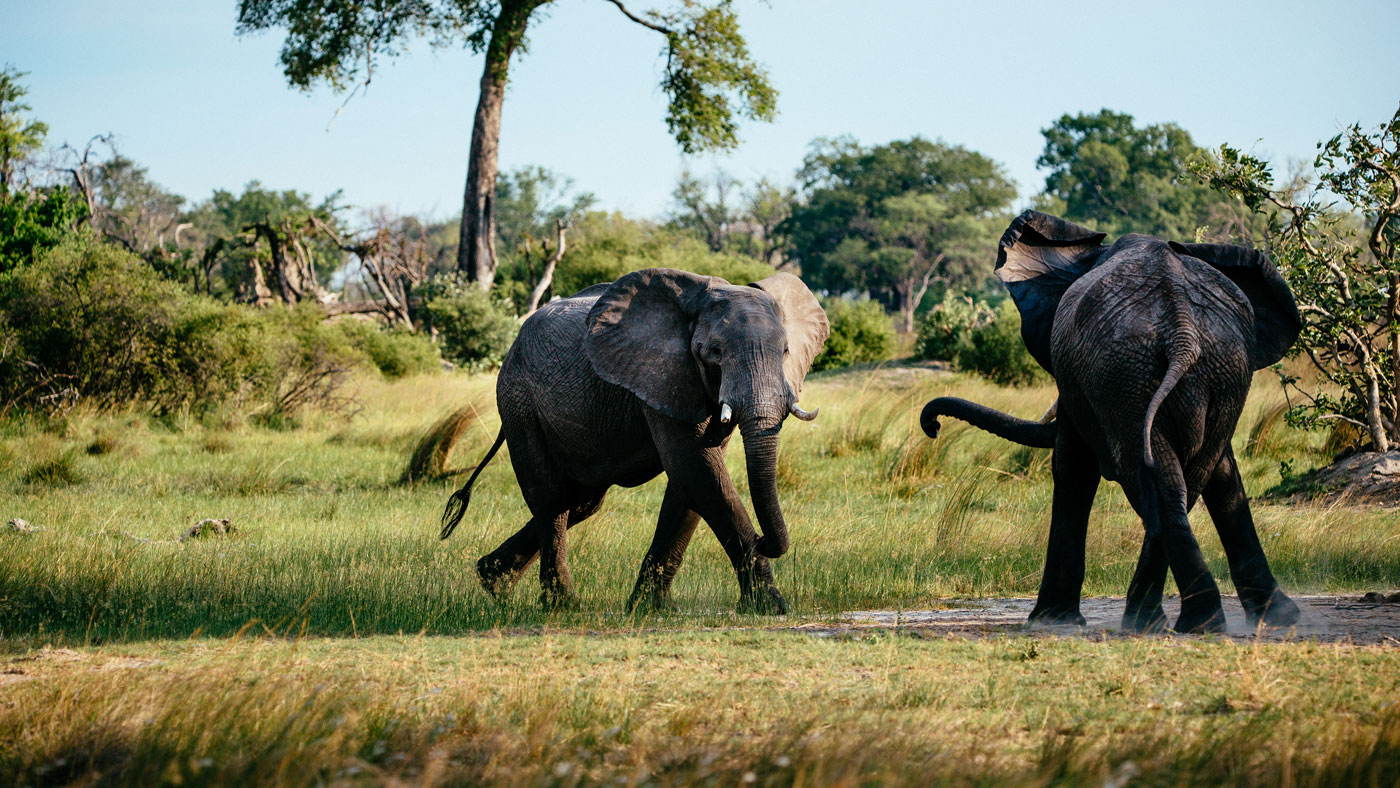Botswana investigating mysterious sudden deaths of 350 elephants
Experts fear unexplained mass die-off may be result of unknown pathogen

A free daily email with the biggest news stories of the day – and the best features from TheWeek.com
You are now subscribed
Your newsletter sign-up was successful
Scientists are struggling to explain the sudden deaths of more than 350 elephants in northern Botswana, in what has been described as a “conservation disaster”.
The spate of elephant deaths in the southern African nation’s Okavango Delta was first reported in early May, with 169 confirmed to have died by the end of the month. “By mid June, the number had more than doubled,” The Guardian reports.
Some carcasses were found clustered around waterholes, while others appear to have fallen “flat on their faces”, says Niall McCann, director of conservation at UK charity National Park Rescue.
The Week
Escape your echo chamber. Get the facts behind the news, plus analysis from multiple perspectives.

Sign up for The Week's Free Newsletters
From our morning news briefing to a weekly Good News Newsletter, get the best of The Week delivered directly to your inbox.
From our morning news briefing to a weekly Good News Newsletter, get the best of The Week delivered directly to your inbox.
Witnesses say that live elephants seen nearby have appeared physically weak, with at least one animal “walking in circles, unable to change direction”, reports CNN.
The Botswana government says that laboratories in Canada, South Africa and Zimbabwe have been asked to “process the samples taken from the dead elephants”, in a bid to explain the mass die-off.
In a report prepared for the authorities, conservation organisation Elephants Without Borders (EWB) said aerial surveys showed that elephants of all ages appeared to be dying, according to Reuters.
The deaths come a year after an elephant hunting ban was repealed in Botswana, which is home to around 130,000 of the animals - almost a third of the total on the continent.
A free daily email with the biggest news stories of the day – and the best features from TheWeek.com
However, investigators say the carcasses were found with the tusks intact. And while cyanide poisoning is sometimes used by poachers, “it is only elephants that are dying and nothing else”, says McCann said. “If it was cyanide used by poachers, you would expect to see other deaths.”
Instead, the cause of the death could be a parasite - or even coronavirus.
“There is no precedent for this being a natural phenomenon but without proper testing, it will never be known,” said McCann.
Until test results are available, “it is impossible to rule out the possibility of a disease crossing into the human population - especially if the cause is in either the water sources or the soil”, says the BBC.
McCann warns: “It is a conservation disaster - but it also has the potential to be a public health crisis.”
-
 The ‘ravenous’ demand for Cornish minerals
The ‘ravenous’ demand for Cornish mineralsUnder the Radar Growing need for critical minerals to power tech has intensified ‘appetite’ for lithium, which could be a ‘huge boon’ for local economy
-
 Why are election experts taking Trump’s midterm threats seriously?
Why are election experts taking Trump’s midterm threats seriously?IN THE SPOTLIGHT As the president muses about polling place deployments and a centralized electoral system aimed at one-party control, lawmakers are taking this administration at its word
-
 ‘Restaurateurs have become millionaires’
‘Restaurateurs have become millionaires’Instant Opinion Opinion, comment and editorials of the day
-
 Epstein files topple law CEO, roil UK government
Epstein files topple law CEO, roil UK governmentSpeed Read Peter Mandelson, Britain’s former ambassador to the US, is caught up in the scandal
-
 Iran and US prepare to meet after skirmishes
Iran and US prepare to meet after skirmishesSpeed Read The incident comes amid heightened tensions in the Middle East
-
 Israel retrieves final hostage’s body from Gaza
Israel retrieves final hostage’s body from GazaSpeed Read The 24-year-old police officer was killed during the initial Hamas attack
-
 China’s Xi targets top general in growing purge
China’s Xi targets top general in growing purgeSpeed Read Zhang Youxia is being investigated over ‘grave violations’ of the law
-
 Panama and Canada are negotiating over a crucial copper mine
Panama and Canada are negotiating over a crucial copper mineIn the Spotlight Panama is set to make a final decision on the mine this summer
-
 Why Greenland’s natural resources are nearly impossible to mine
Why Greenland’s natural resources are nearly impossible to mineThe Explainer The country’s natural landscape makes the task extremely difficult
-
 Iran cuts internet as protests escalate
Iran cuts internet as protests escalateSpeed Reada Government buildings across the country have been set on fire
-
 US nabs ‘shadow’ tanker claimed by Russia
US nabs ‘shadow’ tanker claimed by RussiaSpeed Read The ship was one of two vessels seized by the US military